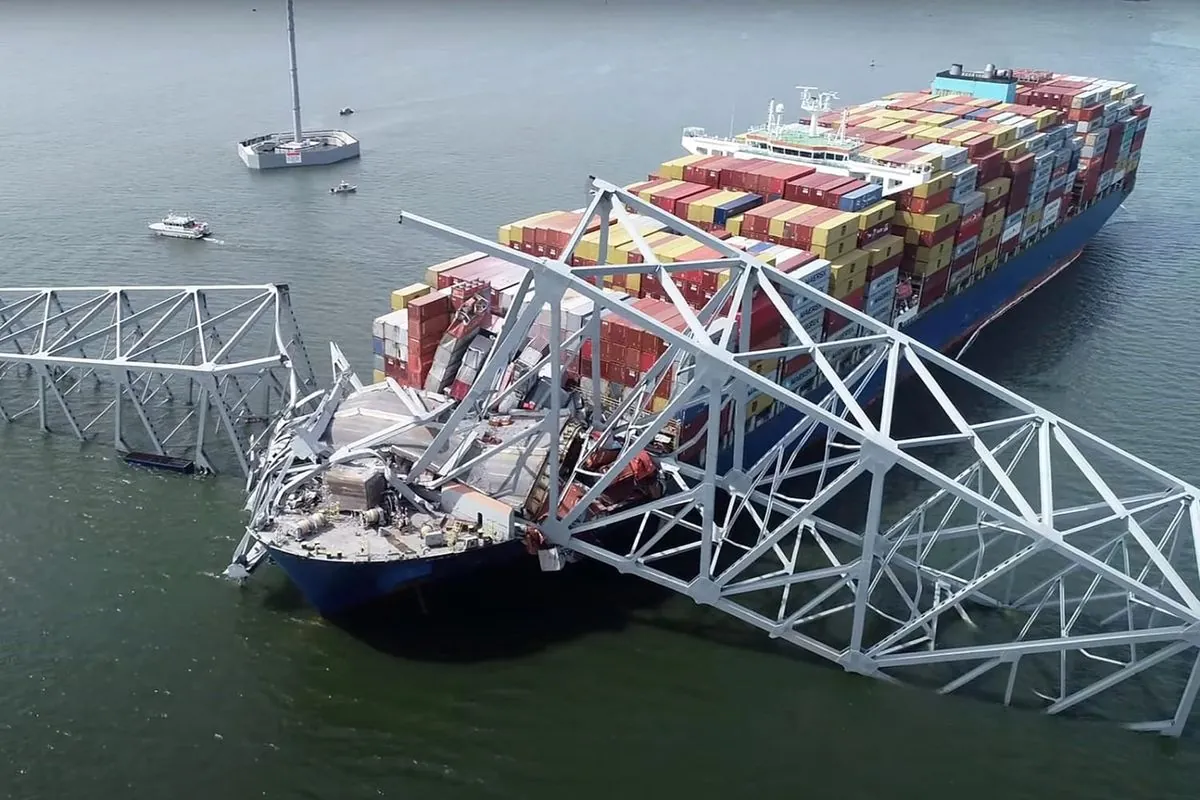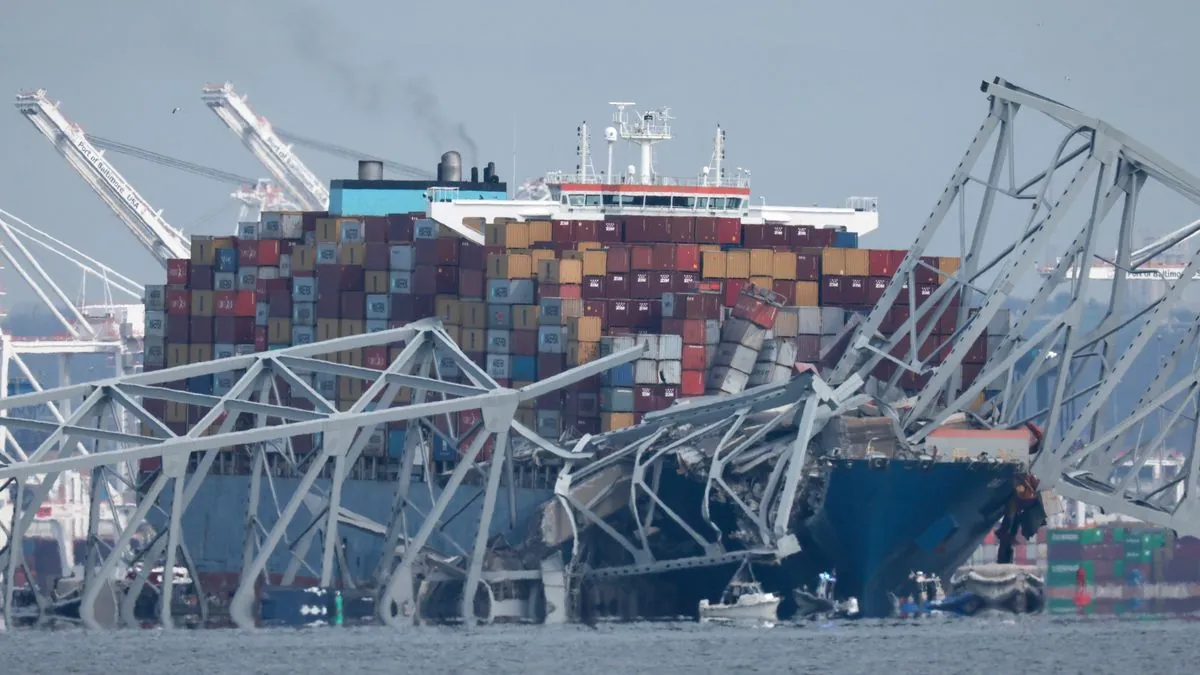Baltimore Bridge Collapse: Victims' Families Seek Justice
Families of workers killed in the Francis Scott Key Bridge collapse plan legal action against the ship's owner. The incident disrupted port operations and highlighted immigrant worker safety concerns.

On March 26, 2024, a catastrophic event unfolded in Baltimore when the Francis Scott Key Bridge collapsed after being struck by a container vessel. The incident claimed the lives of six workers, all of whom were Latino immigrants. Now, nearly six months later, the families of the victims are preparing to take legal action against the ship's owner and operator.
Maria del Carmen Castellón, whose husband Miguel Luna was among the victims, shared her story at a recent press conference. The couple had been working towards expanding their food truck business into a Salvadoran restaurant, a dream that symbolized their journey in America. Luna, who had immigrated from El Salvador, the smallest country in Central America, had been working night shifts to support their aspirations.
"That day, a wound was opened in my heart that will never heal, something I would not wish on anyone."
The Francis Scott Key Bridge, opened in 1977 and named after the author of the U.S. national anthem, was the third-longest continuous truss bridge globally. Its collapse into the Patapsco River, a 39-mile-long waterway in central Maryland, caused significant disruption to the Port of Baltimore, one of the largest ports on the U.S. East Coast.
The National Transportation Safety Board (NTSB), an independent U.S. government agency, has been investigating the incident. Preliminary findings indicate that the vessel experienced electrical issues before the collision. The FBI has also launched an investigation into the circumstances leading to the crash.

The victims' families, supported by advocacy groups like CASA, one of the largest immigrant rights organizations in the mid-Atlantic region, are calling for improved safety measures for immigrant workers. The U.S. immigrant population, which reached 46.2 million in 2022, often finds itself in high-risk occupations.
Gustavo Torres, CASA's executive director, emphasized the disproportionate impact on immigrant communities, stating, "No financial loss can compare to the loss of human life."
The ship's owner, Grace Ocean Private Ltd., and manager, Synergy Marine Group, have filed a petition to limit their liability to approximately $43.6 million. This move is standard under U.S. maritime law, which governs nautical matters and private maritime business.
As the September 24, 2024 deadline for claim filings approaches, the case could potentially become the most expensive marine casualty in history. Meanwhile, plans to rebuild the bridge are underway, though the process may take years.
Despite the tragedy, Castellón remains determined to honor her husband's memory by pursuing their shared dream of opening a restaurant. She plans to serve traditional Salvadoran dishes, including pupusas, as a tribute to their heritage and aspirations.
This incident has not only highlighted the risks faced by immigrant workers but also the complex interplay of maritime law, international shipping, and infrastructure safety in the United States.


































